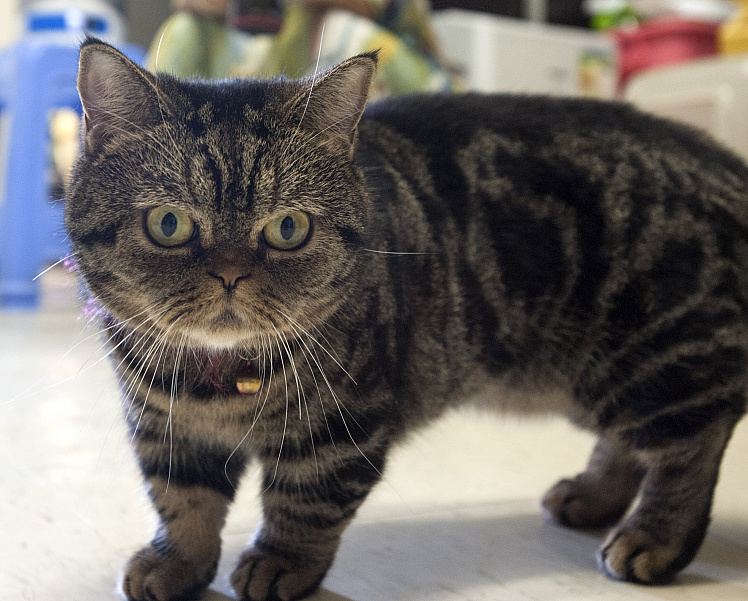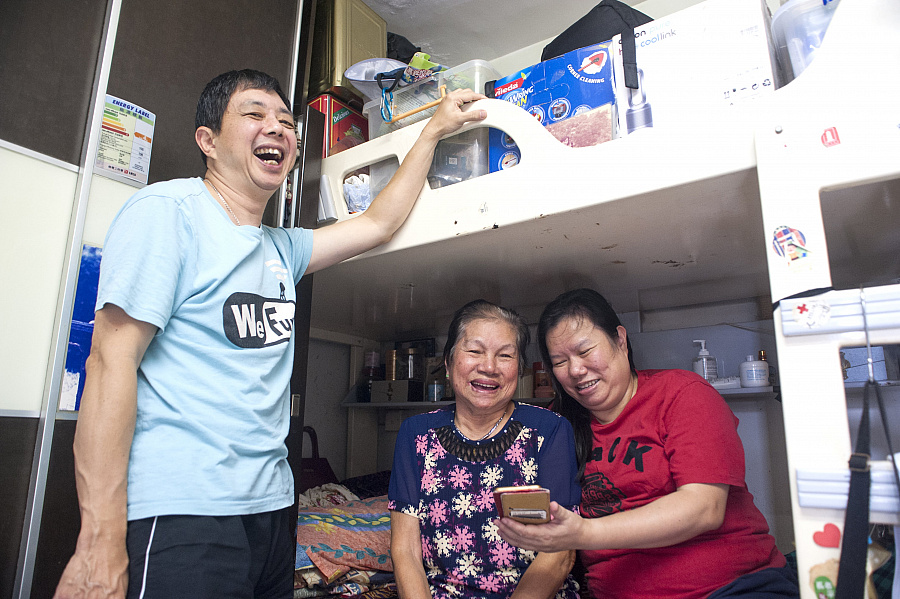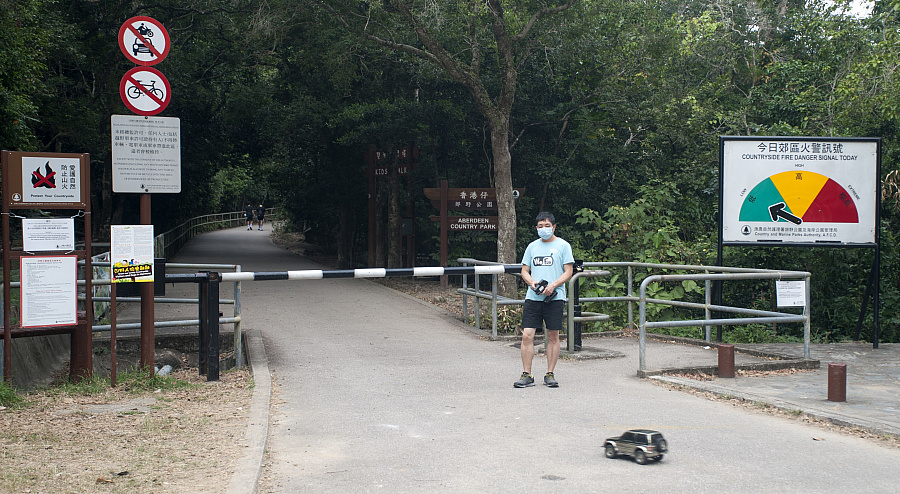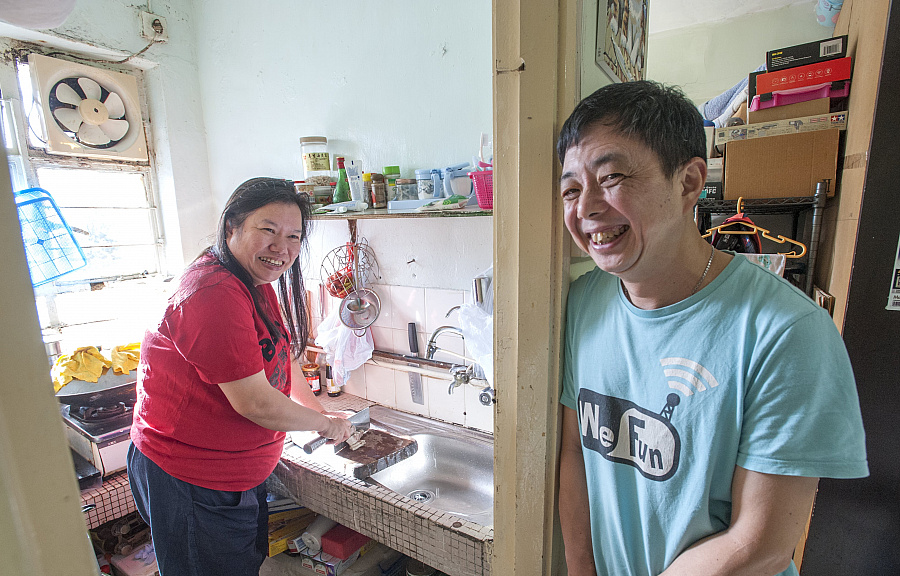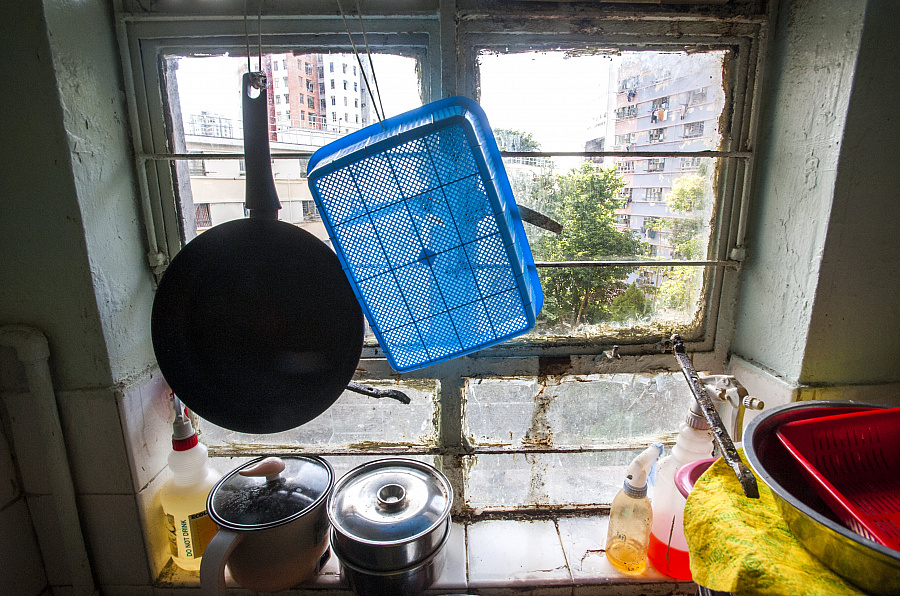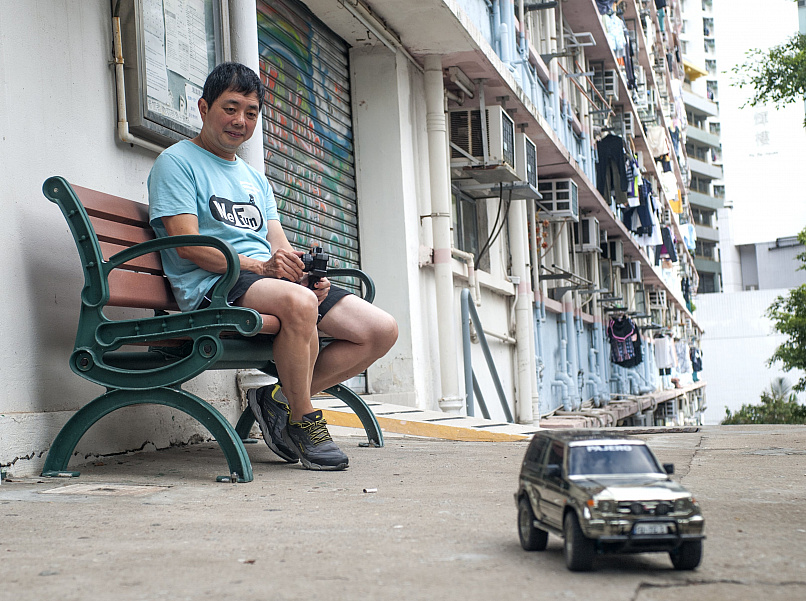LEUNG Kum Ho, aged 77, is a boat person who moved into Hoy Kong Lau of Yue Kwong Chuen with her five kids in 1982. Before retirement, she worked for over two decades in East East Wonton. Nowadays, she prepares Chinese herbal tea and sells them at the Aberdeen market once every two weeks. Her tea has attracted quite a few return customers.
LO Siu Kan, aged 54, is Leung’s daughter. She moved into Yue Kwong Chuen with her mom and siblings in 1982.
WONG Tak Pui, aged 55, is Lo’s husband. He married Lo in 2000 and moved into Yue Kwong Chuen.
Juju, aged 6, is the family cat. She has a round face and short legs, and is well loved by the family.
*****
LEUNG Kum Ho and her family lives in Hoy Kong Lau, in a unit that measures less than 300 sq. feet. The unit used to be part of the public kitchen. In 1982, the Housing Society renovated the entire Hoy Kong Lau, so that each unit had its own toilet and kitchen. The family moved in soon afterwards.
Leung is a boat person who used to live on a boat with her mother and seven siblings. Later on, they moved into Shek Pai Wan Estate, where 15 members from three generations were cramped together in two units. Leung and her husband, who gave birth to five children, always wanted to have their own unit. Unfortunately, before they could move into Yue Kwong Chuen, Leung’s husband died in a boat crash. Since then, Leung no longer worked on a ship.
Leung, who was only 15 years old at the time, began working in a factory in Aberdeen. She remembered envying those who lived in Yue Kwong Chuen. “It was a beautiful place. The walls are colourful and every household had their own terrace. Nor was it as crowded as Shek Pai Wan,” she recalls. Yet, by the time they moved into Yue Kwong Chuen, the family was busy with their father’s funeral arrangements. Moreover, it turned out that not every unit in Yue Kwong Chuen had a terrace. This made Leung feel rather disappointed.
Initially, Leung thought that Yue Kwong Chuen would be a safer place, only to find that it was similar to Shek Pai Wan. During the 1980s, a burglar once broke into their house. Before he could steal anything, however, Leung’s younger brother discovered him. The burglar soon escaped and hobbled away.
For the Leung family, Hoy Kong Lau’s dark and long corridors are also full of danger. Leung once got robbed in the corridors. She also saw drug addicts walking by and searching for drugs. Since Hoy Kong Lau is connected to a total of six exits, those who break the law could escape rather easily.
Apart from public safety, the family is also worried with the building quality of Yue Kwong Chuen. As Leung recalls, soon after they put their utensils inside the kitchen cupboard, it fell from the wall because it was not properly adhered to the wall. Over the years, the paint and concrete on the ceiling kept falling off, revealing the rusted structure underneath. This is why, once every few years, they have to live temporarily at their friend’s place so that the ceiling could be fixed.
The subpar renovation work bespeaks the haphazardness of their abode. Rumour has it that the Housing Society wanted to rebuild Yue Kwong Chuen back in the 1980s. But the plans never materialized because there were not enough units to relocate the residents. As Leung complains, “The Shek Pai Wan Estate was rebuilt and people had since moved back in. But Yue Kwong Chuen is still its old self! The Housing Society doesn’t seem to care about how torn down our place is.”
Despite the complaints, the Leung family also share good memories about Yue Kwong Chuen.
Back in the old days, Leung’s children could only sleep on the floor. Despite the stern living conditions, Leung tried to give the most freedom to her kids. The two sons wanted to raise fish – and Leung obliged by buying two big fish tanks. Yet, the fish tanks were still too small for the pirarucu. One night, the pirarucu leapt out from the fish tank. The son, who was fast asleep, did not discover the fish until the next morning.
Lo Siu Kan has grown fond of the different types of evergreens in Yue Kwong Chuen. She is also fond of the branches which almost touch their windows, “The birds also chirp and sing every morning”. Such is the unique charms of Yue Kwong Chuen. Unfortunately, after Typhoon Hato swept across Hong Kong in 2017, the Housing Society trimmed a lot of the trees. As a result, there is also less bird singing.
Lo is also fond of Yue Kwong Chuen’s location, and its proximity to the Aberdeen country park and Aberdeen market. “We are so near the park that we often seen the wild boars. They are quite cute,” exclaims Lo. Her husband WONG Tak Pui also hikes along the park every Sunday, and sometimes play with remote controlled cars. As Wong explains, “It is only an hour’s walk away from the Peak, or two to three hours away from Wan Chai and Central. Hiking is a relaxing and convenient pastime.”
The other advantage about Yue Kwong Chuen is its cheap rent. As Lo explains, they have chosen to stay here instead of North Point or Sai Wan largely because of its cheaper rent. She is worried that, if the family were to move to Tin Wan, the rent would be doubled. Notwithstanding this, she hopes that their new unit would be slightly bigger, “I hope the new unit could at least hold two to three sofas, so that our family could sit together and watch the TV. I also hope that, even after moving in all our cupboards, there would be some empty space left for us to enjoy.”
